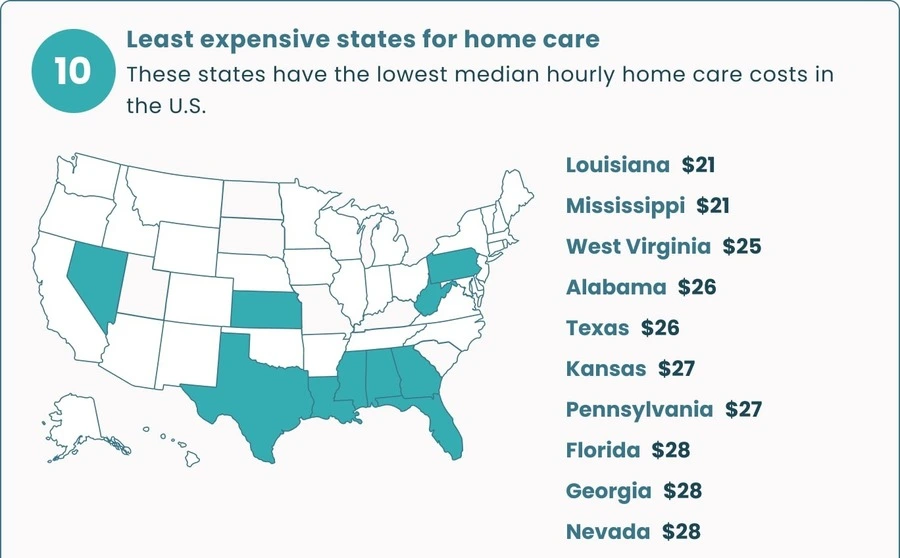As you navigate the complexities of caring for an aging loved one, the concept of non-medical in-home care may have crossed your mind. This invaluable service has emerged as a lifeline for countless families, offering a compassionate and personalized approach to supporting seniors in the comfort of their own homes. In this comprehensive guide, we’ll explore the world of non-medical in-home care, unveiling its profound impact on the well-being of both seniors and their families.
Non-medical in-home care encompasses a wide range of services designed to assist older adults with daily living activities, promoting independence, and enhancing their quality of life. From companionship and personal care to light housekeeping and transportation, these services are tailored to meet the unique needs of each individual, ensuring they receive the support they require while maintaining their dignity and autonomy.
As you delve into the world of non-medical in-home care, you’ll discover a compassionate and dedicated community of caregivers who are committed to making a positive difference in the lives of seniors and their loved ones. Prepare to embark on a journey that will not only enlighten you but also provide you with the tools and knowledge necessary to make informed decisions for your cherished family member.
The Importance of Non-Medical In-Home Care for Seniors
As we age, the desire to maintain independence and familiarity within our own homes becomes increasingly paramount. However, the challenges that often accompany the golden years can make this aspiration difficult to achieve without the right support system in place. This is where non-medical in-home care plays a crucial role, offering a comprehensive solution that empowers seniors to age gracefully in the comfort of their cherished surroundings.
For many older adults, the thought of leaving their homes and transitioning to an assisted living facility or nursing home can be daunting and emotionally taxing. Non-medical in-home care provides a viable alternative, allowing seniors to remain in the familiar environments they know and love, surrounded by cherished memories and personal belongings. This sense of familiarity and continuity can have a profound impact on their overall well-being, reducing the stress and disorientation often associated with relocation.
Furthermore, non-medical in-home care fosters a sense of independence and autonomy, enabling seniors to maintain control over their daily routines and decisions. With the support of compassionate caregivers, they can continue to engage in the activities they enjoy, follow their preferred schedules, and make choices that align with their personal preferences and values.
Benefits of Non-Medical Home Care Services
Non-medical in-home care offers a multitude of benefits that extend far beyond the physical realm. By providing comprehensive support tailored to individual needs, these services contribute to the overall well-being of seniors and bring peace of mind to their loved ones. Here are some of the key advantages:
- Personalized Care: Each senior has unique requirements and preferences. Non-medical in-home care services are designed to accommodate these individual needs, ensuring a personalized approach that respects the client’s dignity and autonomy.
- Improved Quality of Life: By assisting with daily tasks and providing companionship, non-medical caregivers help alleviate stress and promote a sense of comfort and security for seniors. This enhanced quality of life can have a positive impact on their overall health and happiness.
- Respite for Family Caregivers: Caring for an aging loved one can be physically and emotionally demanding. Non-medical in-home care services offer much-needed respite for family caregivers, allowing them to attend to their own needs while ensuring their loved one receives professional care and support.
- Safety and Fall Prevention: As seniors age, the risk of falls and accidents increases. Non-medical caregivers are trained to identify and mitigate potential hazards within the home, promoting a safer living environment and providing peace of mind for families.
- Socialization and Companionship: Loneliness and social isolation can have detrimental effects on seniors’ mental and emotional well-being. Non-medical caregivers offer companionship, engaging in meaningful conversations, activities, and outings, fostering a sense of connection and purpose.
- Delayed Institutionalization: By providing the necessary support and care within the familiar surroundings of home, non-medical in-home care services can potentially delay or even prevent the need for institutional care, allowing seniors to maintain their independence for as long as possible.
The Difference Between Medical and Non-Medical In-Home Care

Photo: Courtesy of QualityHomeCare.
As you explore the world of in-home care, it’s essential to understand the distinction between medical and non-medical services. While both types of care aim to support seniors in their homes, they differ in the level of medical expertise and the types of services provided.
Medical in-home care, also known as home health care, involves skilled medical professionals, such as registered nurses, licensed practical nurses, or therapists. These caregivers are qualified to provide medical treatments, administer medications, and manage chronic conditions or post-operative care. Medical in-home care is typically prescribed by a physician and may be covered by Medicare, Medicaid, or private insurance.
On the other hand, non-medical in-home care focuses on providing assistance with daily living activities and personal care tasks. These services are designed to support seniors in maintaining their independence and quality of life without requiring medical intervention. Non-medical caregivers are trained to assist with activities such as:
- Bathing, grooming, and dressing
- Meal preparation and nutrition assistance
- Light housekeeping and laundry
- Transportation and running errands
- Medication reminders (but not administration)
- Companionship and socialization
While non-medical caregivers are not licensed to provide medical care, they play a crucial role in supporting seniors’ overall well-being and enabling them to age in place safely and comfortably.
Services Provided By Non-Medical In-Home Care Agencies
Non-medical in-home care agencies offer a comprehensive range of services tailored to meet the unique needs of each client. These services are designed to promote independence, enhance quality of life, and provide peace of mind for families. Here are some of the most common services provided:
- Personal Care Assistance: Caregivers assist with daily activities such as bathing, dressing, grooming, and toileting, ensuring seniors maintain their personal hygiene and dignity.
- Meal Preparation and Nutrition Support: Nutritious meals are essential for seniors’ overall health and well-being. Caregivers can plan and prepare balanced meals, accommodating dietary restrictions or preferences.
- Light Housekeeping: Maintaining a clean and organized living environment can become challenging for seniors. Caregivers assist with light housekeeping tasks, such as dusting, vacuuming, and laundry.
- Transportation and Errands: Caregivers provide transportation services, ensuring seniors can attend medical appointments, social engagements, or run errands without relying on family members or public transportation.
- Companionship and Social Engagement: Loneliness and social isolation can significantly impact seniors’ mental and emotional well-being. Caregivers offer companionship, engaging in conversations, activities, and outings to promote socialization and a sense of connection.
- Medication Reminders: While caregivers cannot administer medications, they can provide reminders to ensure seniors take their prescribed medications on time, promoting adherence and overall health.
- Respite Care: Non-medical in-home care agencies also offer respite care services, providing temporary relief for family caregivers who need a break from their caregiving responsibilities.
- Specialized Services: Some agencies may offer specialized services, such as dementia care, hospice support, or assistance for those with physical or cognitive impairments.
How to Choose the Right Non-Medical In-Home Care Agency for Your Loved One

Selecting the right non-medical in-home care agency is a crucial decision that can significantly impact the well-being and quality of life of your loved one. With numerous options available, it’s essential to carefully evaluate and compare agencies to find the best fit. Here are some key factors to consider:
- Reputation and Experience: Research the agency’s reputation by reading reviews, checking accreditations, and inquiring about their experience in providing non-medical in-home care services.
- Caregiver Qualifications and Training: Ensure the agency employs caregivers who are properly trained, screened, and equipped to handle the specific needs of your loved one. Inquire about their training programs and ongoing education opportunities.
- Personalized Care Plans: A reputable agency should develop a personalized care plan tailored to your loved one’s unique requirements, preferences, and goals. This plan should be regularly reviewed and updated as needed.
- Supervision and Quality Assurance: Find out how the agency supervises and monitors the quality of care provided by their caregivers. Look for agencies that have robust quality assurance protocols in place.
- Availability and Scheduling: Consider the agency’s availability and scheduling flexibility. Ensure they can accommodate your loved one’s needs, whether it’s 24/7 care, respite care, or occasional assistance.
- Communication and Responsiveness: Evaluate the agency’s communication channels and responsiveness. A good agency should keep you informed and promptly address any concerns or questions you may have.
- Cost and Payment Options: Understand the agency’s pricing structure and inquire about any available payment options, such as long-term care insurance or veterans’ benefits. Transparency in pricing is essential.
- Cultural Competency and Language Considerations: If your loved one has specific cultural or linguistic needs, ensure the agency can provide caregivers who are culturally competent and fluent in the required language.
By carefully evaluating these factors, you can increase the likelihood of finding an agency that aligns with your loved one’s needs, values, and preferences, ensuring they receive the highest quality of care and support.
Cost of Non-Medical Home Care Services

Photo: Thanks to A Place for Mom.
The cost of non-medical in-home care services can vary depending on several factors, including the location, the type and frequency of services required, and the agency or provider you choose. Understanding the potential costs involved can help you make informed decisions and plan accordingly.
Typically, non-medical in-home care services are charged on an hourly basis, with rates ranging from $23 to $30 per hour, depending on your geographic location and the agency’s pricing structure. Some agencies may offer discounted rates for longer shifts or live-in care.
It’s important to note that the costs can quickly add up, especially if your loved one requires round-the-clock or extensive care. For example, if your loved one needs 24-hour care, the monthly cost could range roughly from $15,000 to $20,000 or more, depending on the hourly rate and the level of care required.
To help offset the costs of non-medical in-home care, there are several options to consider:
- Long-Term Care Insurance: If your loved one has a long-term care insurance policy, it may cover a portion or all of the costs associated with non-medical in-home care services.
- Veterans’ Benefits: Veterans and their spouses may be eligible for financial assistance through the Veterans Administration (VA) to cover the costs of in-home care services.
- Medicaid: Depending on your loved one’s financial situation and the state in which they reside, Medicaid may provide coverage for certain non-medical in-home care services.
- Community Resources: Some local organizations, such as Area Agencies on Aging or non-profit organizations, may offer subsidized or low-cost in-home care services for seniors in need.
- Family Contributions: In some cases, family members may pool their resources to cover the costs of non-medical in-home care for their loved one.
When considering the costs, it’s essential to weigh the potential financial burden against the benefits of allowing your loved one to age in place comfortably and with dignity. Many families find that the peace of mind and improved quality of life for their loved one make the investment in non-medical in-home care services worthwhile.
Testimonials from Families Who Have Experienced the Benefits of Non-Medical In-Home Care Provided by Angels Instead
Hearing firsthand accounts from families who have experienced the transformative power of non-medical in-home care can provide invaluable insights and reassurance. Here are a few testimonials that highlight the profound impact our services can have:
“My mother’s non-medical caregiver has been a true blessing. Not only does she assist with daily tasks, but she also provides much-needed companionship and emotional support. Mom looks forward to her visits, and I have peace of mind knowing she’s in caring hands.” – Sarah, daughter of a client.
“When my father’s health began to decline, we were hesitant to consider in-home care. However, the caregivers from the agency we chose have been nothing short of exceptional. They treat my father with respect and dignity, and their attention to detail has allowed him to maintain his independence and quality of life.” – John K, son of a client.
“After my husband’s stroke, I was overwhelmed trying to juggle his care and household responsibilities. The non-medical caregivers have been a lifeline, providing the support we need while allowing my husband to remain in the comfort of our home. Their compassion and professionalism have been truly remarkable.” – Emily Quale, wife of a client.
“As a family caregiver, the respite care provided by the non-medical in-home care agency has been invaluable. Knowing my mother is in capable hands allows me to take a much-needed break and recharge, ensuring I can continue providing the best possible care for her.” – Michael Michaelsson, son and caregiver.
These testimonials serve as a powerful reminder of the profound impact non-medical in-home care can have on the lives of seniors and their loved ones, fostering a sense of security, independence, and overall well-being.
Tips for Ensuring a Smooth Transition to Non-Medical In-Home Care
Introducing non-medical in-home care services into your loved one’s life can be a significant transition, and it’s natural to experience some apprehension or resistance initially. However, with proper planning and open communication, you can ensure a smooth and successful transition, minimizing stress and maximizing the benefits of these services. Here are some tips to consider:
- Involve Your Loved One: Engage your loved one in the decision-making process as much as possible. Listen to their concerns, preferences, and goals, and involve them in selecting the care agency and caregivers.
- Start Gradually: Consider starting with a few hours of care per week and gradually increasing the frequency as your loved one becomes more comfortable with the caregivers and routine.
- Communicate Openly: Maintain open and honest communication with your loved one, the caregivers, and the care agency. Address any concerns or issues promptly to ensure a positive experience for all parties involved.
- Establish Routines and Schedules: Consistency and predictability can help your loved one feel more at ease with the new arrangement. Work with the caregivers to establish routines and schedules that align with your loved one’s preferences and needs.
- Foster a Positive Relationship: Encourage your loved one to develop a positive relationship with their caregivers. Promote open communication, respect, and trust, as these elements are essential for a successful caregiving experience.
- Provide Detailed Information: Share detailed information about your loved one’s preferences, routines, medical conditions, and any special needs with the care agency and caregivers. This will help ensure personalized and appropriate care.
- Be Patient and Flexible: Understand that adjustments may be necessary as you navigate this new arrangement. Be patient and flexible, and don’t hesitate to make changes or adjustments as needed to ensure your loved one’s comfort and well-being.
By following these tips and maintaining open communication with all parties involved, you can create a smooth and successful transition to non-medical in-home care, ensuring your loved one receives the support and care they need while maintaining their independence and dignity.
The Peace of Mind that Non-medical In-Home Care Brings to Families
As you’ve journeyed through the world of non-medical in-home care, you’ve likely gained a deeper appreciation for the profound impact these services can have on the lives of seniors and their families. Beyond the practical assistance and support provided, non-medical in-home care offers a priceless gift: peace of mind.
For families navigating the challenges of caring for an aging loved one, the peace of mind that comes with knowing their cherished family member is receiving compassionate, personalized care in the comfort of their own home is invaluable. Non-medical caregivers become trusted companions, providing not only physical assistance but also emotional support, companionship, and a sense of security.
With the burden of daily tasks and responsibilities alleviated, families can focus on cherishing quality time with their loved ones, creating lasting memories, and fostering meaningful connections. The peace of mind that non-medical in-home care brings also extends to the seniors themselves, allowing them to maintain their independence, dignity, and familiar routines while receiving the support they need.
As you contemplate the next steps for your loved one’s care, remember that non-medical in-home care is a viable and empowering option that can truly transform lives. By embracing this compassionate approach, you can provide your cherished family member with the care and support they deserve while preserving their autonomy and quality of life.
Embrace the peace of mind that non-medical in-home care offers, and embark on this journey with confidence, knowing that your loved one’s well-being is in capable and caring hands.
If you’re considering non-medical in-home care either for yourself or your loved ones, please reach out to Angels Instead Homecare. Call (281) – 800 – 1800 for a free consultation.









